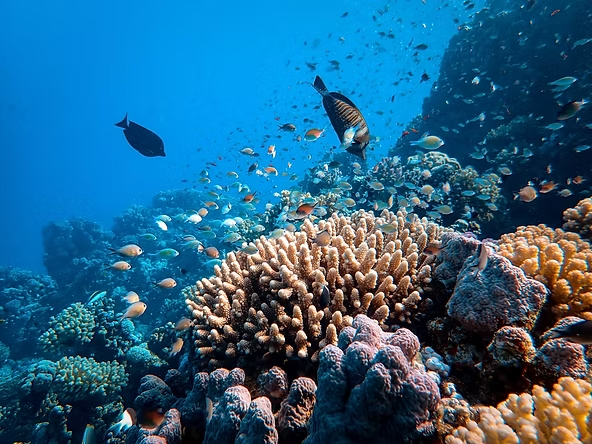Why Healthy Oceans Are Essential for Humans
High levels of species keep oceans robust, and a rich ocean benefits human health as well. Healthy oceans can feed a growing global population, reduce micronutrient deficiencies linked to “hidden hunger,” and provide life-saving medications. For centuries, humans have relied on the ocean as a food source, a natural cleanser, and a sustainer of marine ecosystems. However, evidence shows rapid declines in once-abundant species of fish, mollusks, birds, crustaceans, and plants.
1. Sea Whips Aid in Healing Wounds
Sea whips are soft corals found in parts of the Caribbean. They contain pseudopterosins, chemicals with anti-inflammatory and pain-relieving properties, effective in treating skin irritation, swelling, and wounds.
2. COVID-19 and Marine Species
Aplidin, a drug derived from a Mediterranean Sea squirt, outperformed remdesivir in preclinical studies by roughly 30 times. Enzymes from marine microorganisms were also used to develop COVID-19 diagnostic tests.
3. Cancer Medication from Sea Squirts
Marine invertebrates produce more anti-cancer, antibiotic, and anti-inflammatory compounds than terrestrial species. Ecteinascidin-743, derived from the Atlantic sea squirt Ecteinascidia turbinata, is used to treat advanced tumors. PharmaMar developed a synthetic version for medical use.
4. Oceans and Weather
Oceans regulate weather by absorbing the sun’s energy. Evaporation forms clouds, generating rain, wind, storms, and monsoon rainfall vital to millions in Southeast Asia.
5. Oceans Provide Food
Oceans are the largest ecosystem on Earth, home to 80% of biodiversity. Around 3 billion people receive 20% of their animal protein from fish. Ten species account for roughly 30% of marine catch fisheries, and ten species represent almost 50% of aquaculture productivity.
6. Employment
About 56 million people work directly in fishing and aquaculture, with hundreds of millions more engaged in processing and distribution. Fisheries support the livelihoods of 660–880 million people, roughly 12% of the global population.
Final Words
Human activities threaten oceans through overfishing, pollution, plastics, climate change, and habitat destruction. Vital ecosystems like coral reefs, seagrass meadows, and mangroves are being degraded. Even if we live inland, clean oceans are crucial for human survival. Everyone can contribute to conservation by protecting, restoring, and advocating for marine habitats and species on both local and global scales.

